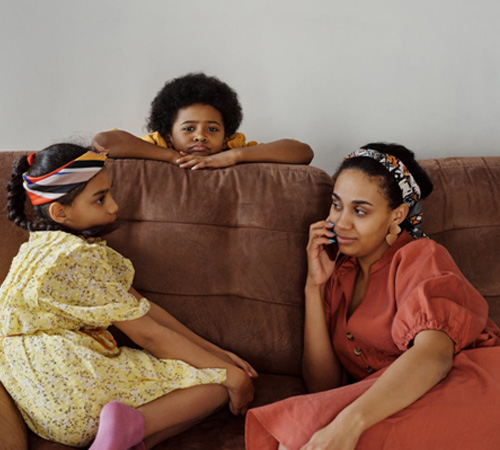Have you been wondering where the difficult questions kids ask come from? Has your child ever asked a question that took you off guard or shocked you?
Children are naturally curious beings. From young, they notice the way their body parts are distinct from that of the opposite sex and have tons of questions.
And as soon as they are able to put these thoughts into words, be rest assured they’ll be headed your way for answers.
When they do, embrace these questions with an open heart for they will provide you with insight into their fears, thought process, and developmental understanding.
In addition, they can also spark great conversations that will strengthen your parent-child bond.
Guidelines To Consider Answering Difficult Questions Kids Ask
Below are some awkward anatomy and sex-themed difficult questions kids ask, and the possible ways to answer them.
But first of all, here are some guidelines you may want to consider.
- Try rephrasing the question(s) to understand exactly what your child is asking.
- Be honest. It’s okay to admit you feel uncomfortable or don’t know exactly how to respond, but that you’re going to try to answer their questions. And when you do, tell the truth. Making up a story about storks or fairies will only cause confusion and mistrust later on.
- Provide simple, straightforward answers, that their minds can comprehend at that time (depending on their ages). No need for too many details.
- When appropriate, defer. If a question about sex comes up in a public place where you won’t be free to have a proper chat, don’t be afraid to say: “That’s a really good question, but we’ll talk about it later when we get home.” And then as soon as you find the time, bring it up yourself, so they know you aren’t dodging the conversation.
- Encourage and be available for follow-up. Let your child know through your words and actions that you are available to offer information and answer questions about sex or anything else, anytime.
Possible Difficult Questions Kids Ask And How To Answer Them
Question: “Why does my sister’s/brother’s body look different from mine?”
Possible Answer:
Tell them that the differences they can see are a function of anatomy. The anatomy of a man’s body makes it that he has a penis while a woman has breasts and a vagina.
A number of pediatricians and child educators are of the opinion that parents should use the correct terms for body parts when you explain to your child about differences in body parts.
These terms — penis, vagina, etc. They should be said as they are, like every other body part, with no implied silliness. Now, this is largely dependent on your child’s age. So, for this, I’ll say, use your discretion.
This way, the child learns to use them in a direct manner, without embarrassment.
Particularly when your children are young, you can explain ‘private parts’ and what body privacy means: that nobody else should touch them.
This is also a good time to let your child know that they should come to you if anyone does attempt to touch their private parts.
RELATED: How To Effectively Keep Kids Busy While You Work From Home
Question: “Where do babies come from?”
Possible Answer: If your kids haven’t already asked you this one, they are right on their way to.
You can start by first asking: “What do you think?” This will help you get a whole understanding of what your child is really asking and how much your child understands.
Then your answer could be a basic explanation like “Babies grow in a place called the uterus, inside mummy”.
Question: “Where do babies come out?”
Possible Answer: This one will definitely be simpler to answer if you’re pregnant.
You could give an elementary but accurate answer like “a mini you is growing in my uterus. When he’s all grown, he’ll squeeze through the birth canal.
Question: “Is it Okay I kiss some boy/girl in my class?”
Possible Answer: If this one tempts you to smile or squirm, my advice is that you lean onto the former.
Now, there is no generic answer to this question.
It will vary depending on your child’s developmental understanding and your personal cum religious beliefs.
However, if you’re inclined to say “No”, do so and explain to them why you think the answer should be so.
You could tell that that kissing is sexual activity and all sexual activities should be something reserved for consenting adults who are married.
Question: “When is it okay to start having sex?”
Possible Answer:
Again, you can respond with the setup question – “what do you think?” Then follow up by explaining to them that sex or lovemaking, is something consenting adults who are married do.
This is also a perfect time to layout other implications of entering into a sexual relationship with someone, especially when they’re not ready.
It’s your responsibility to make them aware of all the emotional and health implications of getting sexually active. It is also important that you tell them how to take proper care of themselves in such events.
Leave nothing out – sexually transmitted diseases (STDs), and pregnancy, etc.
Question: “What is Menstruation? / Why is my vagina bleeding”
Possible Answer:
Objectively, girls, (boys too!) should have information about the menstrual (period) education at about age 8.
Information about menstruation might be provided in school.
However, you can also share your own personal experiences with your girls, including when your period first started.
Explain what it felt like and how it was no longer such a big deal after a while.
Then proceed to teach them how to calculate their period cycle, how to fix a sanitary pad, how to take care of their hygiene during such times, and everything else in between.
Find more resources on raising your kids and other parents experiences here.
Image source: www.pexels.com




